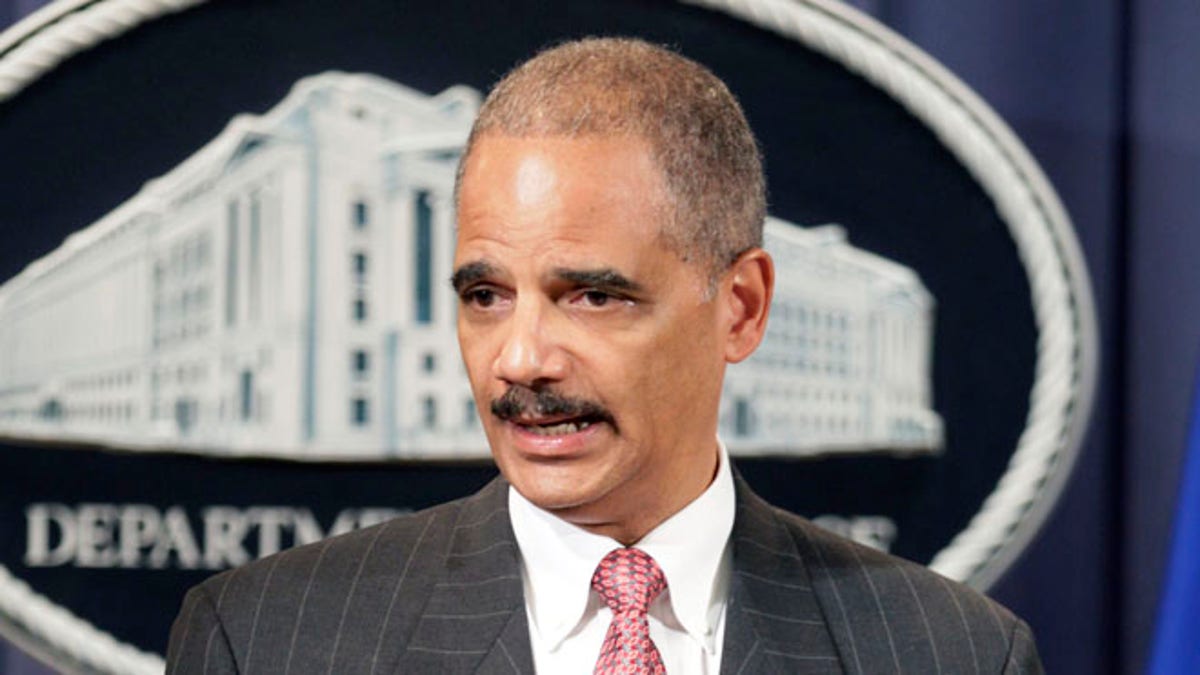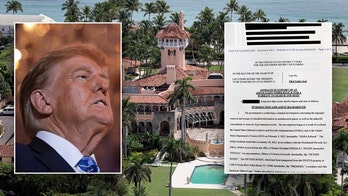
Attorney General Eric Holder is seen in this file photo. (AP)
WASHINGTON – The Justice Department said Thursday that it will sue Texas over its voter ID law and, separately, look for ways to intervene in a lawsuit over the state’s redistricting policies -- in the latest volley in the ongoing dispute between the feds and the Lone Star State.
Texas Gov. Rick Perry, in a brief written statement, blasted the move and said Texas would continue to defend "the integrity of our elections."
"The filing of endless litigation in an effort to obstruct the will of the people of Texas is what we have come to expect from Attorney General Eric Holder and President Obama," Perry said.
Holder, though, said the step marks the department’s “continuing effort to protect the voting rights of all eligible Americans.” He added, “We will not allow the Supreme Court’s recent decision to be interpreted as open season for states to pursue measures that suppress voting rights.”
Holder’s announcement follows a June 25 U.S. Supreme Court ruling that effectively removed a vital portion of the Voting Rights Act that required 16 jurisdictions to seek pre-clearance from the DOJ before making any changes to election laws and redistricting laws.
Following the ruling, Holder called the court’s decision and its reasoning behind it “flawed,” and vowed to find other ways within the law to challenge the ruling. He planned to do this by targeting other provisions in the act that would allow plaintiffs to present cases where they were unfairly targeted by the law.
“The Department will take action against jurisdictions that attempt to hinder access to the ballot box, no matter where it occurs,” he said. “We will keep fighting aggressively to prevent voter disenfranchisement.”
Texas Gov. Rick Perry has called the Obama administration's actions an "end-run around the Supreme Court."
In the voter ID lawsuit, the U.S. government will contend that Texas adopted a voter identification law with the purpose of denying or restricting the right to vote on account of race, color or membership in a language minority group.
Intervening in the redistricting case would enable the federal government to seek a declaration that Texas's 2011 redistricting plans for the U.S. Congress and the Texas State House of Representatives were adopted in order to deny or restrict the right to vote on account of race, color, or membership in a language minority group.
A federal court in Washington, D.C., has previously held that Texas failed to meet its burden of proving that its 2011 redistricting plans and its 2011 voter identification law were not discriminatory.
The separate provision of the Voting Rights Act that Holder is invoking may be a difficult tool for the Obama administration to use.
A handful of jurisdictions have been subjected to advance approval of election changes through the Civil Rights Act provision it is relying on, but a court first must find that a state or local government engaged in intentional discrimination under the Constitution's 14th or 15th amendments, or the jurisdiction has to admit to discrimination. Unlike other parts of the voting law, the discriminatory effect of an action is not enough to trigger the provision.
The Associated Press contributed to this report.




